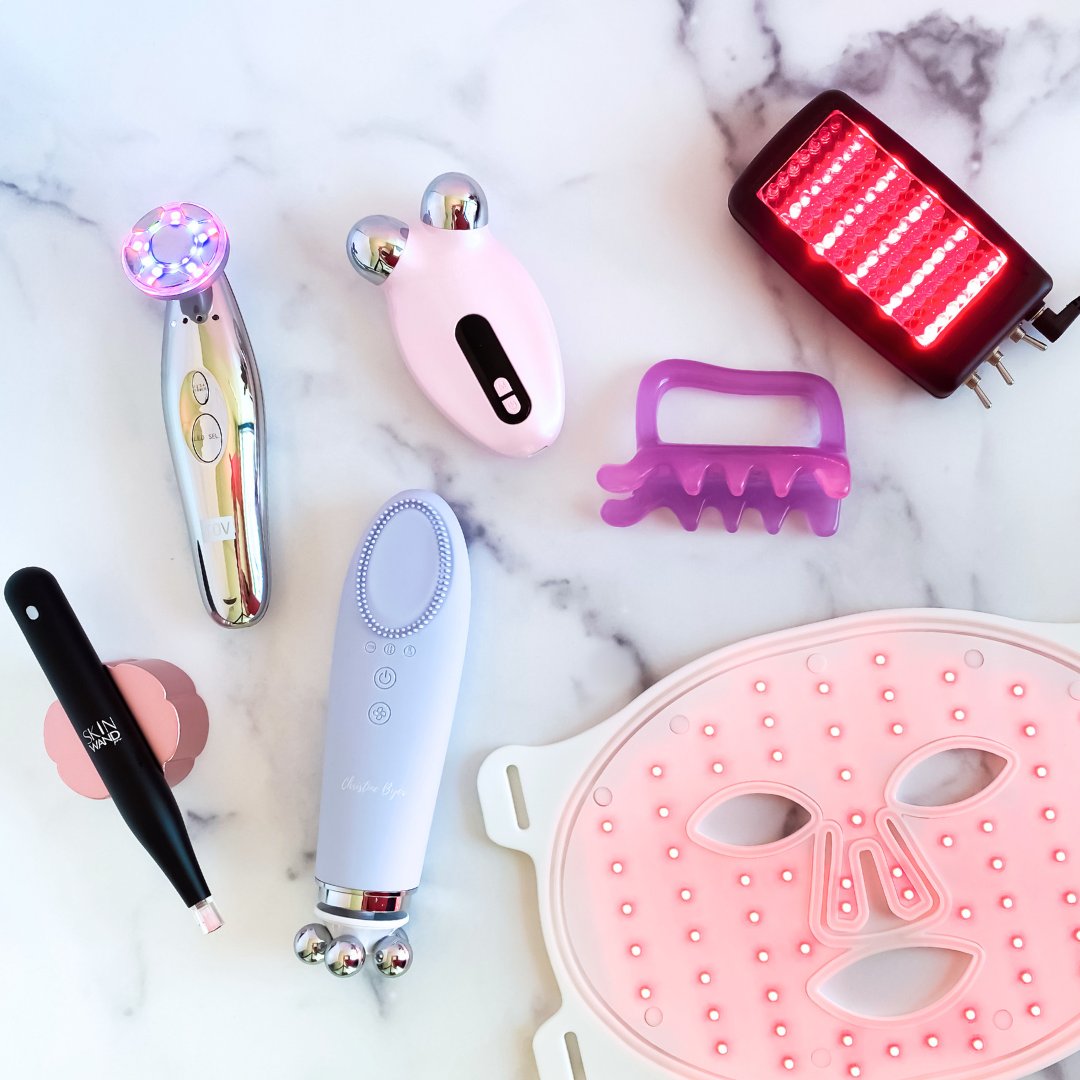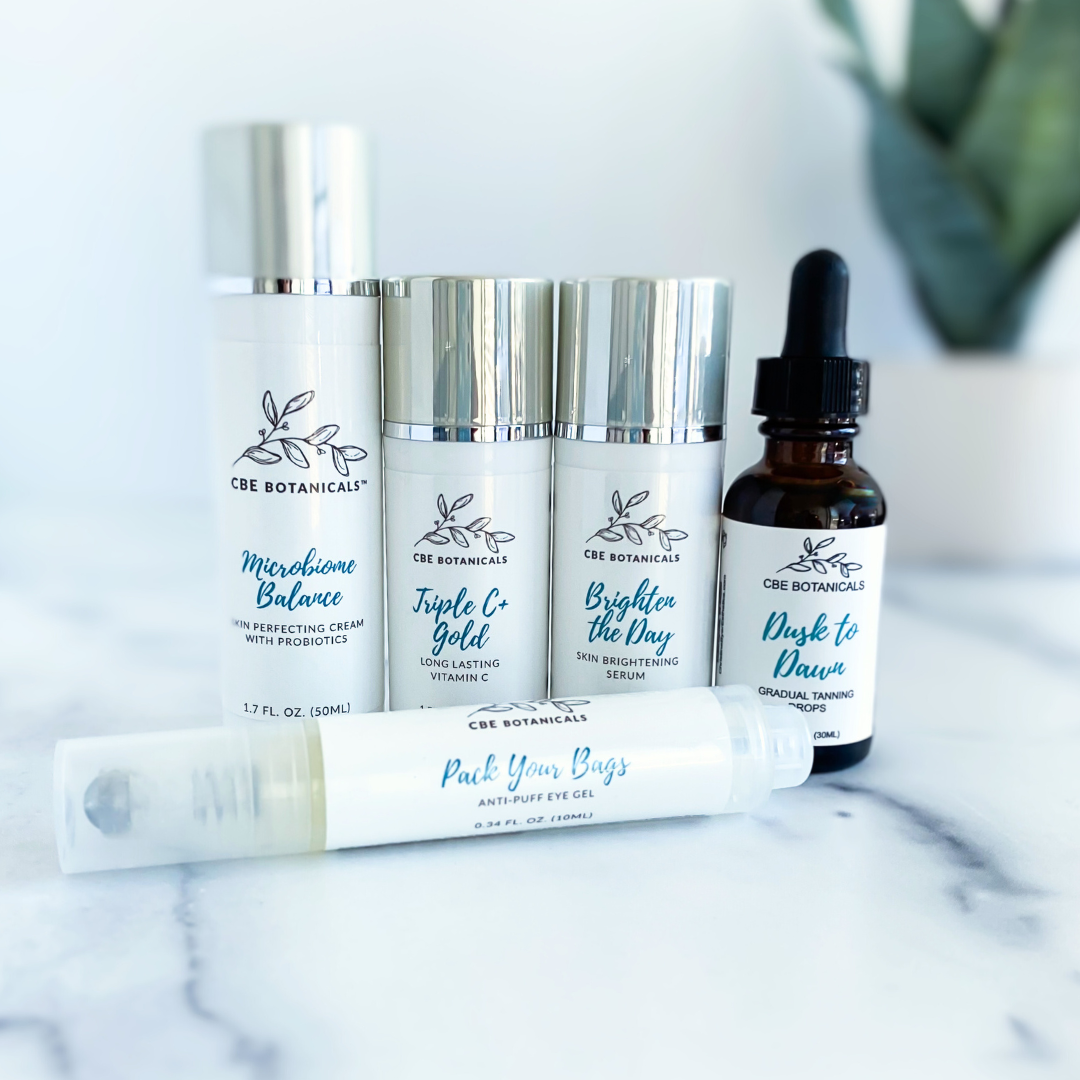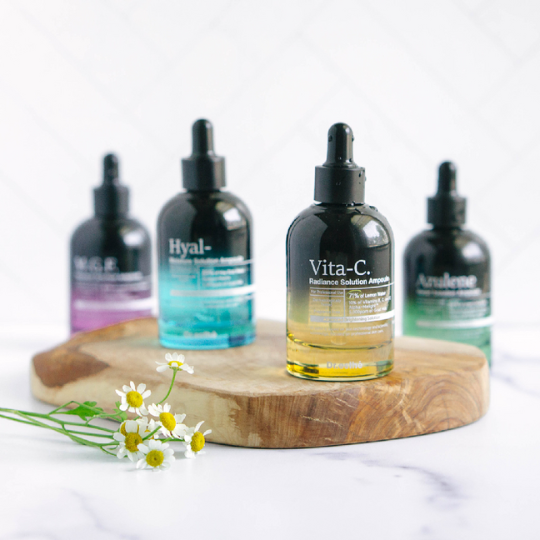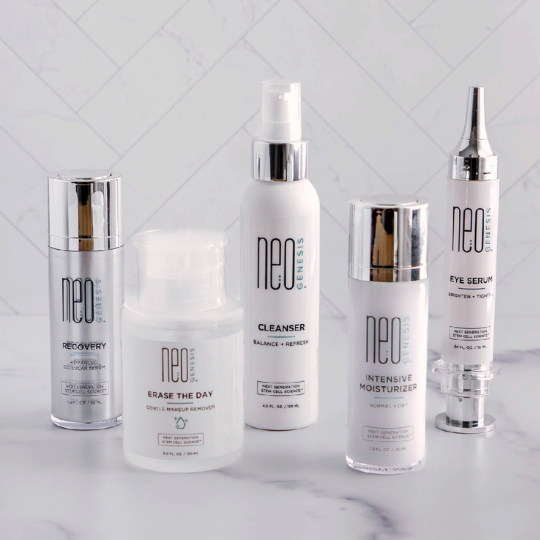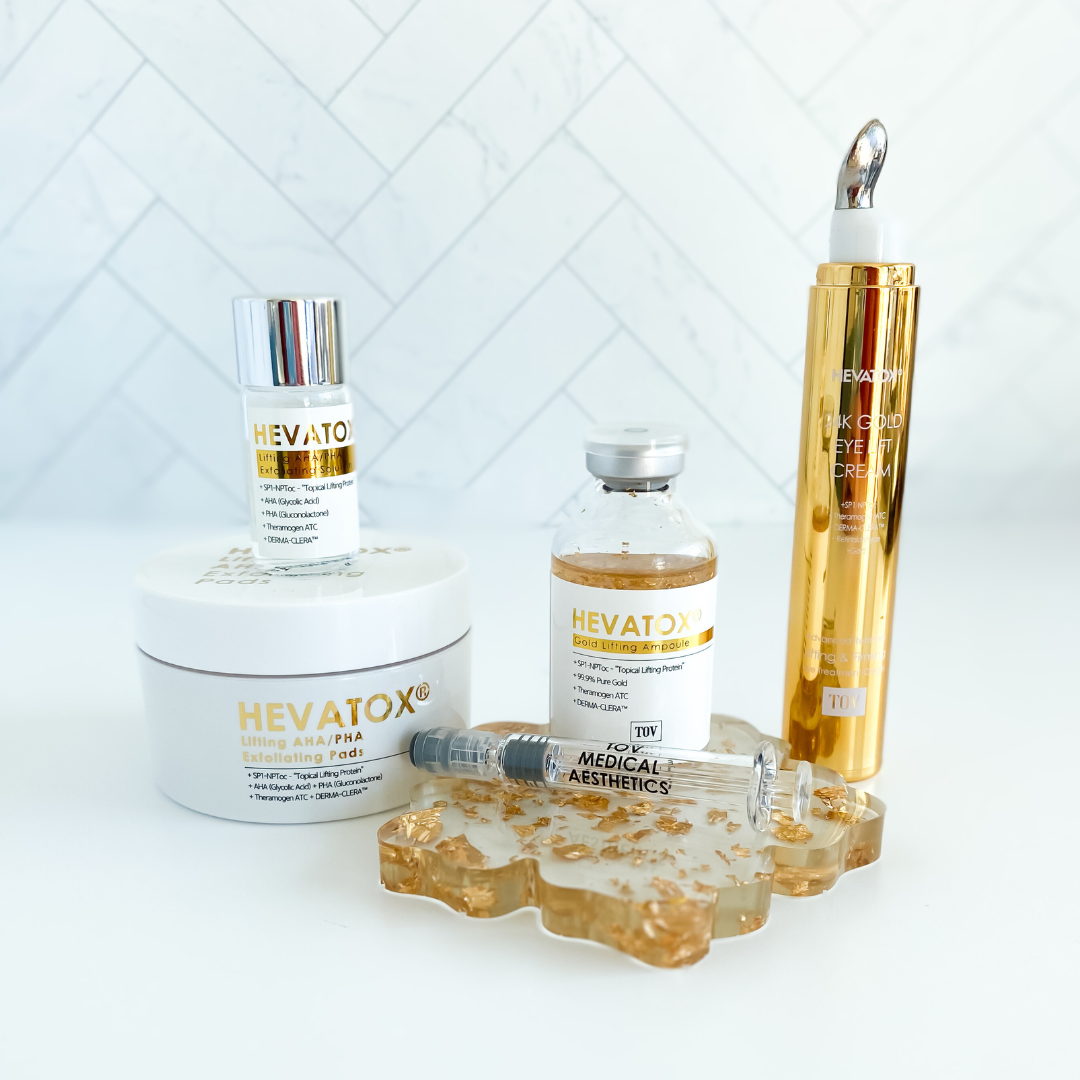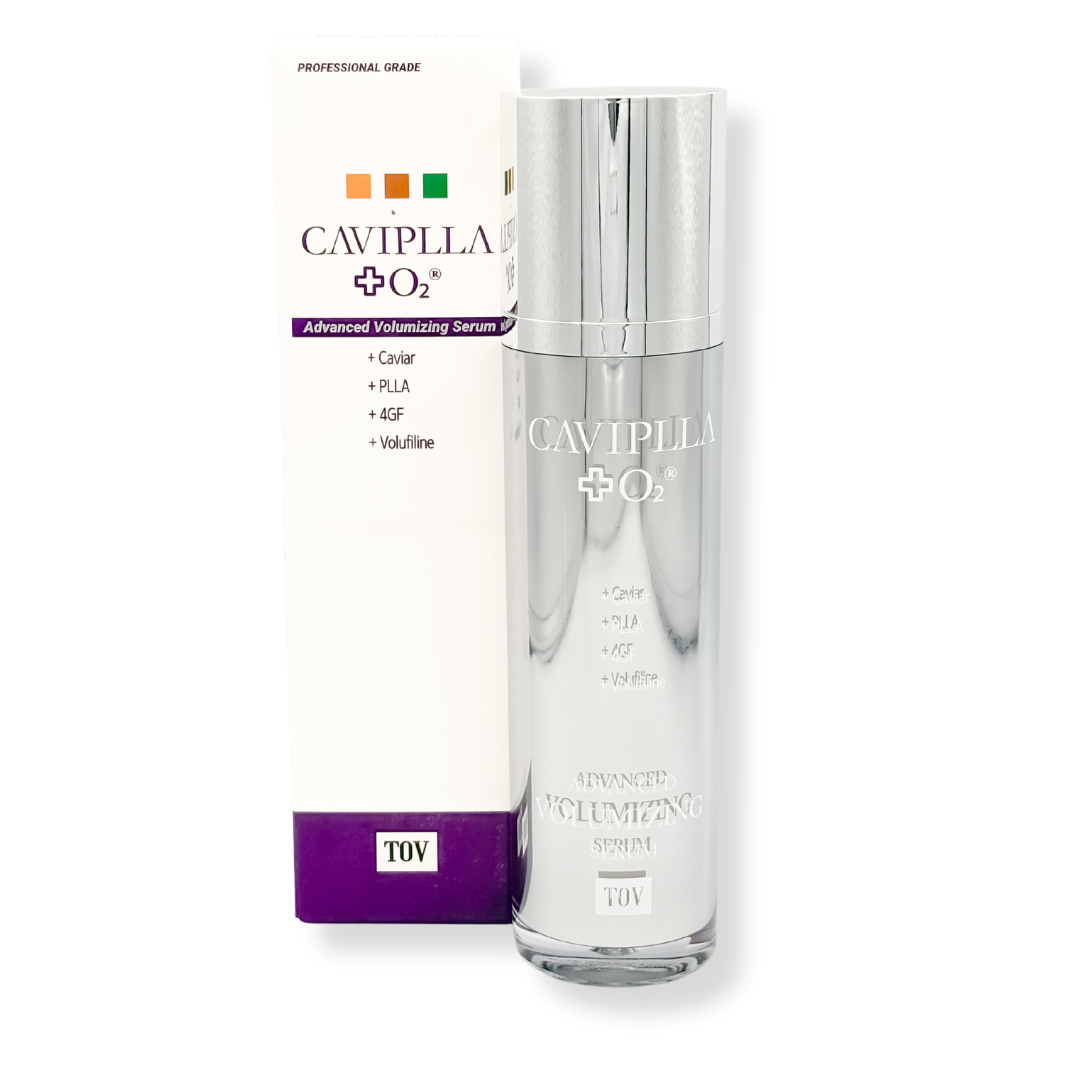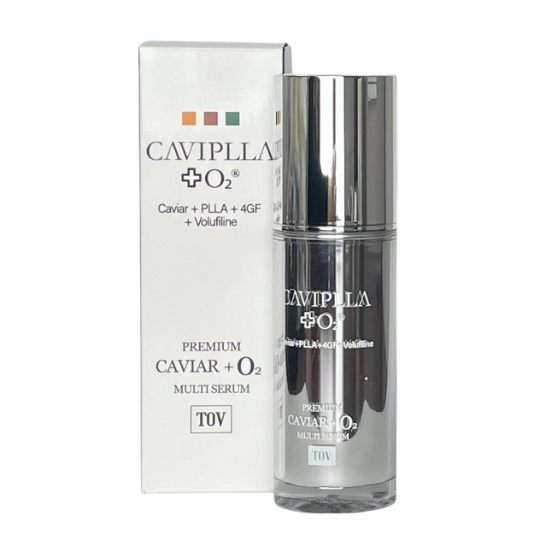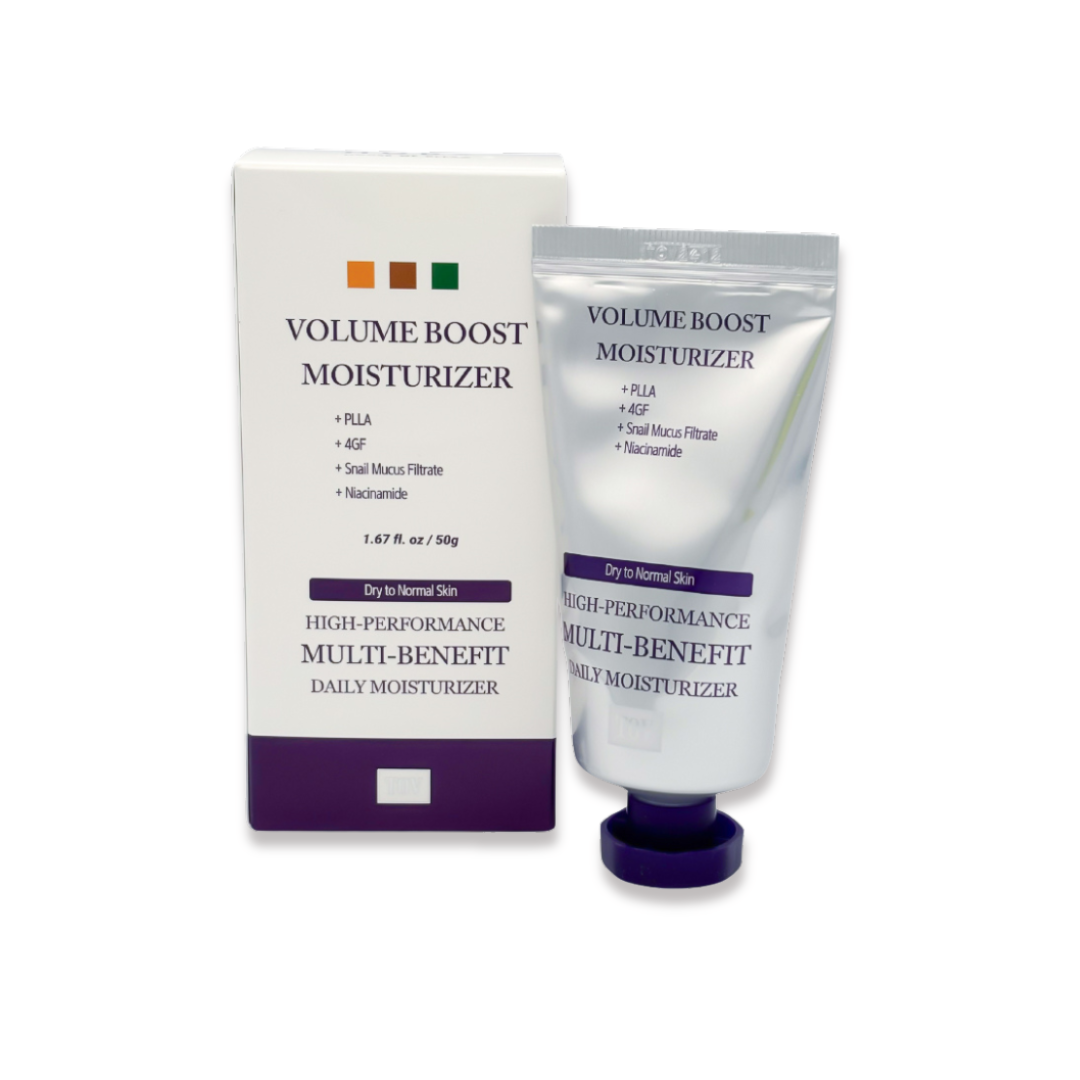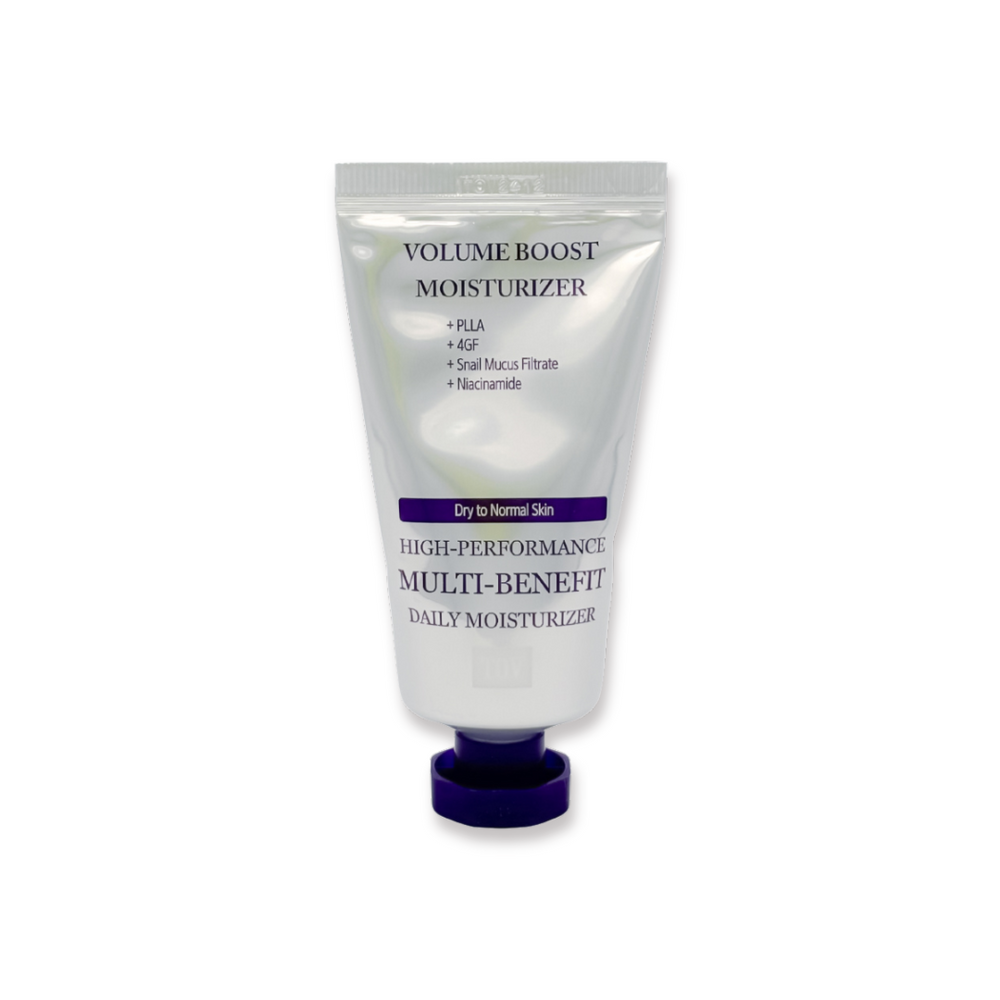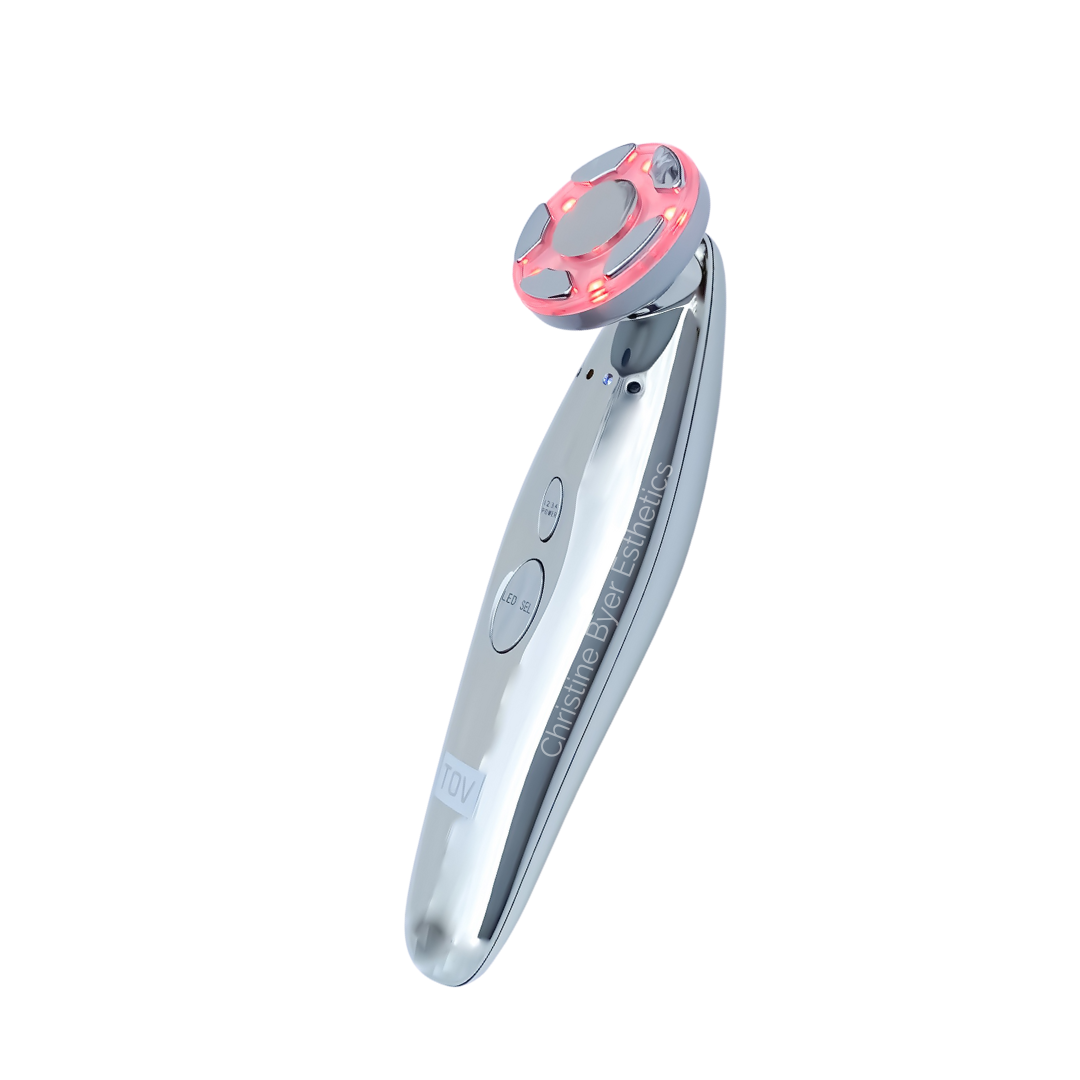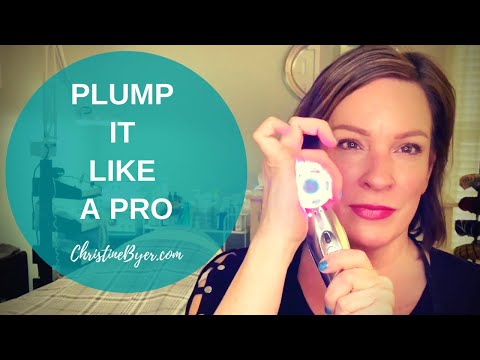- Hydration is crucial: Menopause significantly reduces the skin's ability to retain moisture. We
- Collagen support is essential: With menopause leading to a natural decline in collagen, incorporating products like PLLA serums, along with using skincare devices, can help boost collagen production and combat sagging.
- Stay patient and consistent: The effects of menopause on the skin won't reverse overnight. Consistency in your skincare routine and giving products at least six weeks to show results is key to managing skin changes effectively.
It's here, it's hot, and it's incredibly hormonal. That's right, the dreaded 'm' word: menopause! Once women reach a certain age and their bodies begin to change, the onset of menopause can also cause some unexpected (and unwanted!) skin changes. Fortunately, entering menopause does not mean sacrificing your youthful complexion; you just need to learn how to take care of it!
As an anti-aging esthetician with more than two decades in the skincare industry, I've worked with countless women concerned that the onset of menopause meant saying goodbye to radiant skin. But like any natural evolution of the skin, menopause changes require a bit of extra TLC. Here's what I recommend to keep the skin healthy and beautiful during menopause!
1. Embrace Natural Skin Changes
Menopause isn't the only time your skin transitions. Environmental and hormonal fluctuations have caused continuous changes in your skin from the moment you hit puberty to your early 20s and 30s — and now onto perimenopause and menopause. While some are more visible in nature (we're looking at you, wrinkles and facial sagging), others occur under the skin's surface.
As you enter menopause, a natural drop in hormones like estrogen and progesterone will cause your skin to become thinner and less elastic, and you might notice your facial features look less plump. It's essential to embrace these natural changes as your face ages and understand that the products that worked for your skin ten, five, or even two years ago may no longer have the same effects.
2. Keep Your Skin Ultra Hydrated
Dry, crepey skin is often the most challenging adjustment during menopause. You may notice the lines around your eyes and mouth look more prominent or that your skin looks flakey after you apply makeup. Because your body is naturally producing less estrogen, it will also produce less oil and hold onto less water. So, replenishing the natural moisture in your skin is essential.

- Use a mild cleanser. Avoid harsh soap and reach for a mild cleanser that will increase in skin flexibility and hydration, such as the CBE Botanicals Clean + Gentle.
- Apply a hydrating ampoule. Incorporate a deeply-moisturizing ampoule, like the Dr. Esthé HYAL Moisture Solution, to infuse and lock in hydration.
- Find a go-to daily moisturizer. Opt for the House of PLLA Promoter Repair Cell Moisturizer, a silky formula that deeply hydrates and refines skin from the first application, improving moisture retention over time.
3. Provide Building Blocks for New Collagen
Collagen is a fiber-like protein that gives our skin structure, strength, and support. Women's skin tends to lose nearly 30% of its natural collagen during the first five years of menopause, which can explain why permanent smile lines and jowls begin to appear around the same time. To combat natural skin sagging, you must give your skin the ingredients it needs to produce more collagen.

- Apply retinol. A high-dose Vitamin A formula, such as the CBE Botanicals Sleep On It Retinol Serum, can help boost collagen building and brighten skin tone.
- Use a PLLA serum. Poly L Lactic Acid (PLLA) found in the CaviPLLA Multi-Serum stimulates collagen production and helps plump the hollow or sunken areas of the face.
- Follow-up with a skincare device. Professional-grade devices, like the Time Master Pro Ultrasound and LED, activate skin metabolism and regenerate skin cells for firmer skin.
4. Plump Your Skin With a Facial Massage
As an anti-aging esthetician, I could talk for hours about the benefits of Facial Contouring Massage or FCM. Facial Contouring Massage involves gently working the face, neck, and chest to release fascia, the connective tissue that shapes your face and contributes to fine lines and wrinkles. FCM also purges lymph fluid and toxins that have collected in the facial tissue to smooth out wrinkles.

For an esthetician-worthy Facial Contouring Massage at home, I recommend the Anma Fascia Massage Tool to combat the signs of menopause-related aging. Specially designed for Gua Sha massage techniques to release wrinkles and sagging facial muscles, the Anma also helps bring hydrating and plumping hyaluronic acid to the skin's surface for a radiant complexion.
5. Don't Get Caught Up in the Trends
If you're anything like me, your social media networks are constantly buzzing with different product advertisements and "viral" skincare trends. While getting sucked into skincare trends can be easy, try not to get too caught up in the "next best thing" for your skin. As your skin changes through menopause, rely on your unique skin concerns to guide your skincare strategy.
6. Be Patient With Yourself (and Your Skin!)
An anti-aging skincare routine can help slow the hands of time but cannot miraculously reverse the signs of aging overnight. So, remember to be patient with your results! I recommend that all my clients commit to at least six weeks with a new product or device before they decide it doesn't work for them or they don't see results. I even have a whole guide to track your skincare results over time!
7. Access Support on Your Skincare Journey

Menopause-related skin changes can be scary to navigate alone, especially if you haven't switched up your skincare routine in ages. That's why I'm here to help! As you embark on this new skincare journey, I invite you to join me in the Christine Byer Beauty Club. Access your 14-day free preview of the Beauty Club today to discover the personalized support and skincare advice inside!
Frequently Asked Questions
Can Menopause Affect my Skin's Sensitivity to Sunlight?
Yes, during menopause, your skin may become more sensitive to sunlight due to decreased estrogen levels. It's essential to use sunscreen daily and consider products that offer additional UV protection to prevent further skin damage.
How Can I Manage Sudden Acne Breakouts During Menopause?
Hormonal changes during menopause can sometimes trigger acne breakouts. To manage this, incorporate gentle cleansers, non-comedogenic moisturizers, and possibly a salicylic acid like the NeoGenesis Salicylic Acid Gel that can help reduce breakouts while supporting the skin's re-balancing.
Is it Necessary to Adjust my Diet to Support my Skin During Menopause?
Absolutely! A diet rich in antioxidants, healthy fats, and hydration can support your skin from the inside out during menopause. Omega-3 fatty acids, vitamins C and E, and plenty of water can help maintain skin elasticity and moisture.


